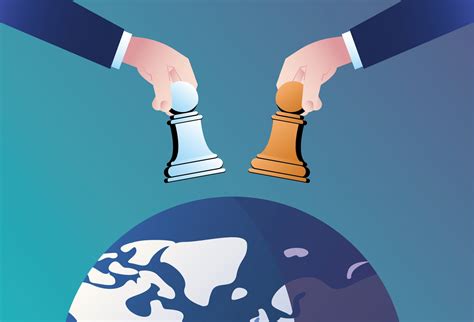Introduction
Global politics chronicles the intricate interactions and dynamics between nations, international organizations, and non-state actors on a global scale. It encompasses a wide range of issues, from international relations and diplomacy to global governance and security. Understanding key concepts in global politics is essential for comprehending the complex world order and its implications for individuals, nations, and the international community.

Power in Global Politics
Power is a central concept in global politics. It refers to the ability of an entity (state, organization, or individual) to influence the behavior of others. Different forms of power exist in the global arena, including:
- Military power: The capacity to use military force to achieve strategic objectives.
- Economic power: The control over and influence of economic resources and wealth.
- Political power: The authority to make and enforce decisions on behalf of a state or organization.
- Soft power: The ability to influence others through attraction and persuasion.
Institutions in Global Politics
International institutions play a crucial role in shaping global politics. They facilitate cooperation, reduce conflict, and promote shared interests. Key international institutions include:
- United Nations (UN): A global organization that aims to maintain peace and security, promote human rights, and foster economic development.
- World Bank: An institution that provides financial assistance to developing countries for economic projects.
- International Monetary Fund (IMF): An organization that provides financial assistance and advice to member countries experiencing economic challenges.
- European Union (EU): A political and economic union of 27 European countries that promotes cooperation and integration.
Challenges in Global Politics
Global politics faces several significant challenges, including:
- Climate change: The threat posed by rising global temperatures and its impacts on ecosystems, economies, and human societies.
- Global inequality: The widening gap between the rich and poor, both within and between countries, which can lead to social unrest and political instability.
- Nationalism and populism: The rise of nationalist and populist movements that prioritize national interests over international cooperation.
- Cybersecurity: The threat to information security posed by cyberattacks, espionage, and the spread of disinformation.
Strategies for Addressing Challenges
Addressing global challenges requires collaborative action and effective strategies. Key strategies include:
- International cooperation: Fostering cooperation between nations and international organizations to address common issues.
- Economic development: Investing in education, infrastructure, and sustainable growth to reduce inequality and promote global stability.
- Education and awareness: Raising awareness about global issues and promoting critical thinking to empower individuals to participate in decision-making.
- Technological innovation: Leveraging technology to address global challenges, such as finding solutions for climate change or developing vaccines for diseases.
Conclusion
Global politics is a dynamic and multifaceted field that impacts the lives of individuals and nations worldwide. Understanding key concepts, such as power, institutions, and challenges, is essential for navigating the complexities of the international order. By fostering cooperation, addressing challenges, and promoting critical thinking, we can shape a more just and sustainable global future.
Additional Tables
Table 1: Forms of Power in Global Politics
| Form of Power | Description |
|---|---|
| Military power | The capacity to use military force to achieve strategic objectives. |
| Economic power | The control over and influence of economic resources and wealth. |
| Political power | The authority to make and enforce decisions on behalf of a state or organization. |
| Soft power | The ability to influence others through attraction and persuasion. |
Table 2: Key International Institutions
| Institution | Purpose |
|---|---|
| United Nations (UN) | Maintains peace and security, promotes human rights, fosters economic development. |
| World Bank | Provides financial assistance to developing countries for economic projects. |
| International Monetary Fund (IMF) | Provides financial assistance and advice to member countries experiencing economic challenges. |
| European Union (EU) | Promotes cooperation and integration among 27 European countries. |
Table 3: Challenges in Global Politics
| Challenge | Description |
|---|---|
| Climate change | Rising global temperatures and their impacts on ecosystems, economies, and human societies. |
| Global inequality | Widening gap between the rich and poor, leading to social unrest and political instability. |
| Nationalism and populism | Rise of nationalist and populist movements prioritizing national interests over international cooperation. |
| Cybersecurity | Threat to information security posed by cyberattacks, espionage, and disinformation. |
Table 4: Strategies for Addressing Challenges in Global Politics
| Strategy | Description |
|---|---|
| International cooperation | Fostering cooperation between nations and international organizations to address common issues. |
| Economic development | Investing in education, infrastructure, and sustainable growth to reduce inequality and promote global stability. |
| Education and awareness | Raising awareness about global issues and promoting critical thinking to empower individuals to participate in decision-making. |
| Technological innovation | Leveraging technology to address global challenges, such as finding solutions for climate change or developing vaccines for diseases. |
